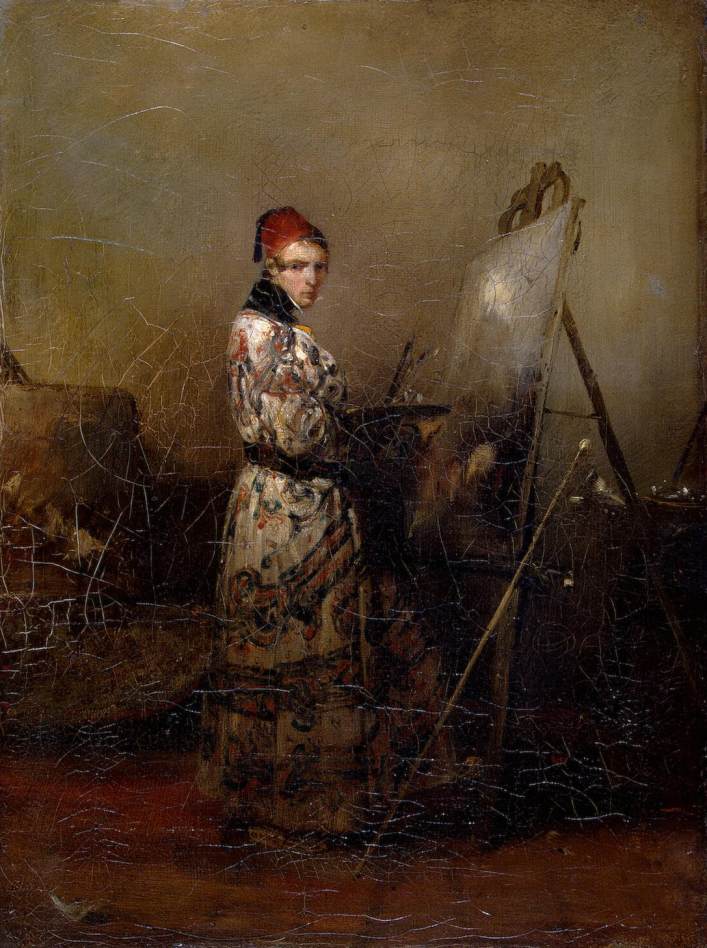Description
Alexandre Gabriel Decamps' Self-Portrait painting is a masterpiece of 19th century art. This work of art is a sample of the artistic style of French realism, which is characterized by the representation of reality in an objective and detailed way.
The composition of the painting is very interesting, as Decamps portrays himself seated in a chair, with a relaxed pose and a serene expression on his face. The artist uses a very careful lighting technique to bring out the details in her face and clothing, giving the painting a very realistic look.
The color used by Decamps in this work is very sober, with brown and gray tones predominating. However, the artist uses some touches of color in the clothing and in the background of the painting, giving it a more vibrant and dynamic look.
The history of the painting is very interesting, as it was created at a time of great change in French society. Decamps was an artist very committed to the ideals of the French Revolution, and his work reflects his commitment to freedom and equality.
Also, there are some little-known aspects about this painting that make it even more fascinating. For example, Decamps is said to have been inspired by Rembrandt's work to create his self-portrait, demonstrating his admiration for classical art.
In summary, the painting Self-Portrait by Alexandre Gabriel Decamps is a masterpiece of French realism that stands out for its artistic style, its careful composition, its use of color and its interesting history. This work of art is a sign of the artist's commitment to the ideals of the French Revolution and his admiration for classical art.

